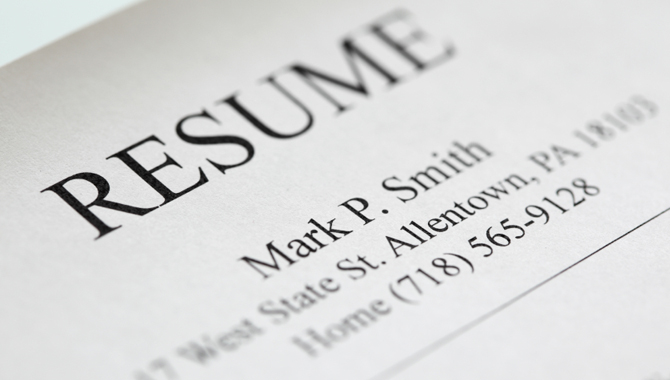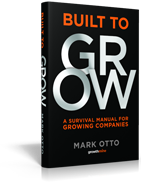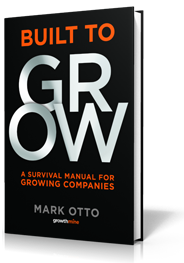
7 Avoidable Hiring Mistakes

Hiring is the most critical component in scaling a business. Period. Nothing else comes close.
The people you choose to hire will impact every part of your business. It’s talent that fuels innovation, customer loyalty, a great culture, and almost every other influence in an organization. It’s talent that adapts, overcomes obstacles, and creates growth.
And yet every day I see leaders haphazardly approach the hiring process.
Hiring success is about avoiding the big mistakes. Here are the most common – and most damaging – hiring mistakes that leaders make:
1. Hiring Under the Gun
When a business is growing and you need help right now, it can be pretty tempting to hire the first person who seems “good enough.” When you’re under pressure, it’s hard to take the time and care necessary to hire a great person: to interview multiple high quality candidates, adequately assess them, and determine if they are a long-term fit.
But making important hiring decisions when you’re desperate rarely works out well – you end up with a company full of misfits where “good enough” becomes the standard. When you wait until you absolutely have to have someone to fill a position, you’ve waited too long. Don’t trade a short-term fix for a long-term problem.
2. Hiring Credentials
A candidate’s education, skills, and experience are the first things that most of us notice. Too often leaders allow those things to unduly influence their hiring decisions.
Smart leaders look beyond a person’s credentials to get a complete picture of the candidate. You need to uncover the qualities that can’t be seen on a resume – how they think, what they value, and how they act. Do they have a combination of book smarts and street smarts? Are they able to navigate unfamiliar situations? Can they work well with others? Does this person know how to evaluate risk? What is their work ethic like? How do they deal with adversity? Can this person get things done?
The credentials someone holds is not an accurate predictor of performance. What’s important is can this person do this job and achieve the necessary result? There are many people who are highly educated and completely incompetent, and many who lack a formal education but are absolutely brilliant. It’s wise to acknowledge that.
3. Not Involving Others
Managers regularly make the final decision about who to hire without the input of others. But that approach leads to many potential problems: you can miss subtle personality traits or there might be technical weaknesses you don’t recognize.
You’ll get much better results if you involve your team in the process. To consistently hire strong people, you need different perspectives. As the leader, the final decision is yours and you don’t have to agree with every opinion. But input from others can provide you with a collective view of whether a candidate has what it takes to be successful and is a good fit for the team.
4. No Interview Process
Even when there is an interview team, there is often no clear plan for what each member is trying to discover. Without a plan, the interviewers ask predictable questions and get predictable responses. What is your greatest accomplishment? What is your biggest failure? What is your greatest weakness? The results don’t yield the kind of useful information needed to make an informed decision about a candidate.
Have a plan. Every person who interviews a candidate needs to be learning something specific about the person’s background, attitudes, and values. Interviewers also need to see the candidate in different settings, in and away from the office. And set aside plenty of time. It’s hard to get past the introductory phase in less than a half hour. If you need two hours or more to get a feel for the candidate, take it, you’ll be happy you did a few months down the road.
5. Hiring People Like You
It’s easy to become enamored with a candidate that went to the same school you did or has the same background you do. However, similarities in attitude, education, experience, skills, political views, and life experiences don’t equate to business success.
It’s a natural impulse to hire people that are easy to connect with. But to build a successful team, you need a variety of perspectives, backgrounds, and skills to overcome challenges and take advantage of opportunities. Don’t fall into the trap of being biased by candidates who are too much like you.
6. Poor Onboarding
For a lot of managers, a successful hire ends with a job offer. New hires go to orientation, fill out some paperwork, and get thrown into the deep end – where they either sink or swim. After all the time and effort involved in making a hire, this is a mistake you simply can’t afford to make.
“You’re hired” is just the beginning. It is your responsibility to get a new person comfortable with their new role and put them in a position to have the best possible chance to be successful. Even top performers need support, direction, and reassurance in their first 90 days. They need time to listen, observe, and learn. This means getting the entire team involved. Great onboarding requires you to clearly communicate roles, reporting relationships, and performance expectations. And you must give regular and honest feedback.
7. Slow to Fire
Even if you do everything right, you will eventually make a bad hire. The warning signs are usually there in the first 90 days. The new person doesn’t have the work ethic you thought, their skills aren’t where they need to be, or in most cases, he just isn’t a good fit.
The longer you keep the wrong person in place, the worse the mistake becomes. Don’t compound the problem by ignoring the mistake. Someone who isn’t working out can drag down the performance of the entire team. Address your mistake directly and as soon as it becomes evident, then move forward. It’s the right thing to do for your company and the person you hired
Are you making any of these hiring mistakes?





